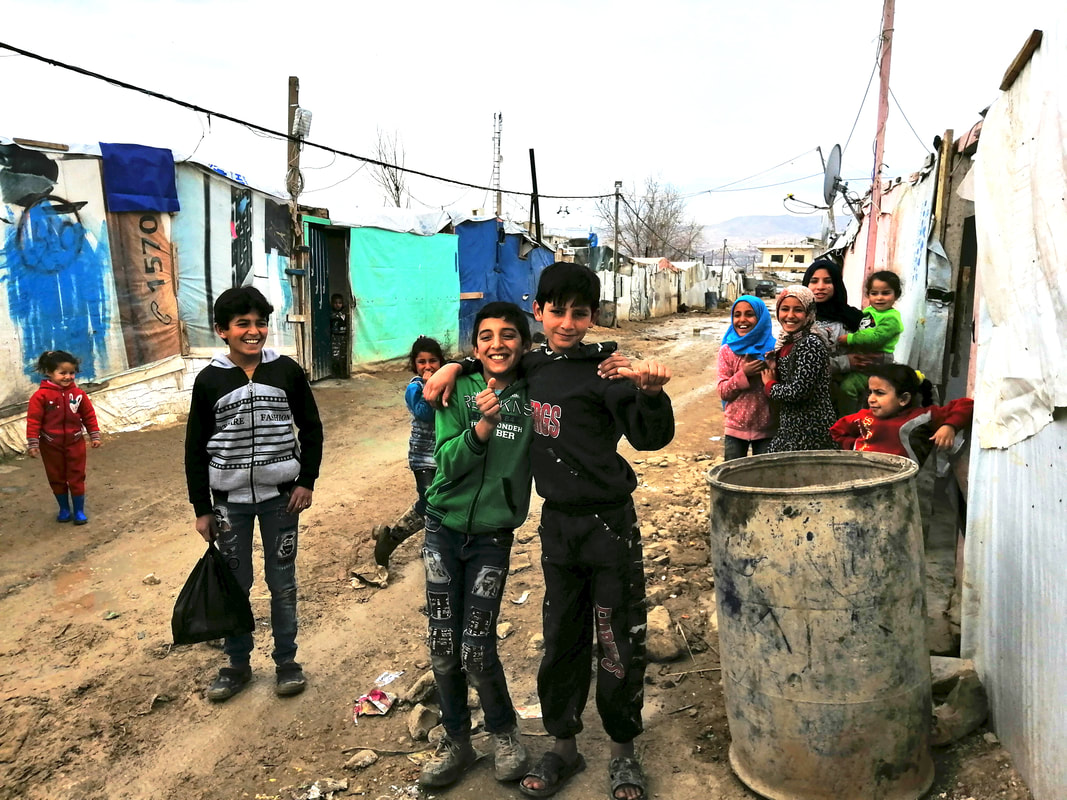Around a third of refugees (around 360,000) are located in the Bekaa Valley, often living in small makeshift or unofficial camps. Large camps are not permitted by the Lebanese government and as a result, informal settlements of 50-100 families have become commonplace. Across the country, refugees in the Bekaa Valley (and Akkar) face the most poverty, with parents often forced to take their children out of school and into full time work to earn a living. Many of the camps are still without basic services for children, including education.
The Lebanese Government has been working with the UN to provide education for all. The main policy has been to enrol refugees into the existing public education system, creating a 2nd shift provision for refugees and encouraging integration. This has not been without its problems. In many areas, refugees vastly outnumber the Lebanese students and there is not the capacity to provide for everyone who needs it. Within the rural Bekaa Valley, public schools are sporadically placed, meaning that access is difficult, and it is estimated that there are more than 250,000 refugee children out of school. There have also been reports of safety issues, harassment, violence and discrimination, which has led to a high dropout rate. Refugee children that do continue to attend struggle with the new and different curricula, language barriers and lack of appropriate infrastructure. There is low teacher capacity, overcrowding, lack of adequate sanitation facilities and limited catch up programmes. All of these factors, faced by children who are also coming to terms with their own trauma and distress, are continuing to create barriers to education. Consequently there is a need for the provision of informal education for children living within the camps. Support usComments are closed.
|
RECEIVE OUR EMAILSBlog Categories
All
Archives
July 2024
|
|
JOIN US ON SOCIAL MEDIA
|
Annual Report | Contact Us | Jobs | Media Centre | Resources | Shop
Accessibility & Policies: Accessibility | Equity, Diversity & Inclusion Policy | Complaints| Privacy Policy | Safeguarding
Accessibility & Policies: Accessibility | Equity, Diversity & Inclusion Policy | Complaints| Privacy Policy | Safeguarding
Children on the Edge, 5 The Victoria, 25 St Pancras, Chichester, West Sussex, PO19 7LT, UK | 01243 538530 | [email protected]



 Give monthly
Give monthly Fundraise for us
Fundraise for us RSS Feed
RSS Feed
